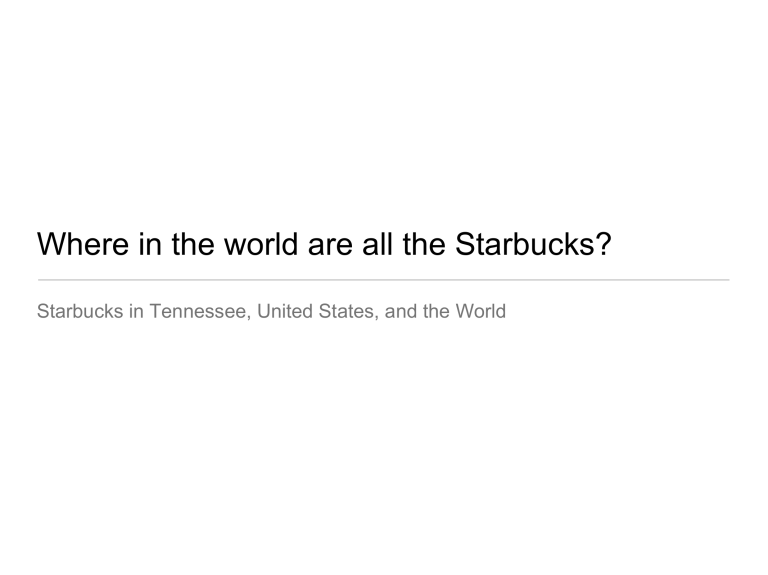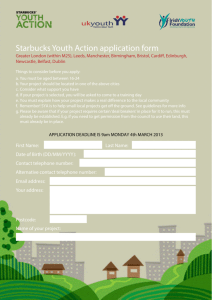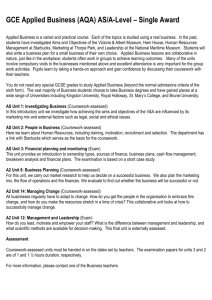Starbucks Development assignment

Where in the world are all the Starbucks?
Starbucks in Tennessee, United States, and the World
Where in the world ?
Found in 45 countries
Seville, Spain
Japanese tourists in Spain at a
Starbucks
McGlobalization &
Starbucks’ World
Coffee
Impacts...
Starbucks Map and Graph Assignment
• Using the Starbucks’ Statistics 2008 Excel document, create a histogram for the total number of Starbucks found in each of the 50 states and the
District of Columbia.
• Use the histogram to determine the categories for the The World, and
United States and create a Chloropleth map.
• Color the map according to the categories determined using dark to light shades of the same color.
• Complete analysis questions found on slide at the end.
Repeat the process
• Now follow the same process and create histogram for the World
• When you have created them, use them to create choropleth maps of both.
• You may print and use the sheet below, or find a outline map of each to print and do each separately.
World Map
Title for Legend
Category 1
Category 2
Category 3
Category 4
Category 5
Category 6
12
Title for Legend
Category 1
Category 2
Category 3
Category 4
Category 5
Category 6
Analysis Questions
• 1. Where in the world are the world’s Starbucks and why are they in those specific countries? Why is Starbucks such a good indicator of development?
• 2. How does the Starbucks World, USA, and TN Map illustrate the importance of understanding scale ? Why is using the same break points (BIN) for each map not effective?
• 3. Why are there so few Starbucks in: a. Africa, b. Northern Europe, c. South Asia?
• 4. In terms of development and HDI. Explain where Starbucks are most likely to be appearing at a rapid rate over the next 10 years or so. Reference data gathered at http://hdr.undp.org/en/data/trends/ in your answer.
• Next, use the following slides to actually create your choropleth maps. You will need to create break points that give you 6 categories. (Change the BIN)
Analysis Questions Pt. 2
• Print the maps you created (preferably in color). Now compare the world maps you created to the map located at: http://hdr.undp.org/en/data/map/
• 5. What similarities or differences do you notice between your maps and the
HDI map? (name specific countries that stand out and why)
• Next, look at the chart at: http://hdr.undp.org/en/statistics/hdi/
• 6. What are the 3 dimensions and 4 indicators for HDI?
• 7. Keeping those in mind, which most likely correlates with the Starbucks exercise? Could an argument be made that they all do? Why?
• Staple together your answers, your maps (including a copy of the HDI map from the internet, and your original histograms. Turn in.




